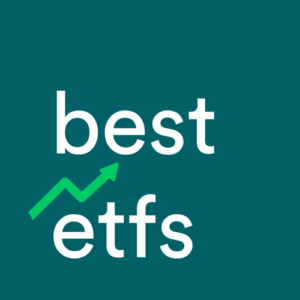Is it time to invest in ETFs such as the BetaShares AMP Capital Global Infrastructure Securities Fund (Unhedged) (Managed Fund) ETF (ASX: GLIN) and SPDR S&P/ASX 200 Resource Fund ETF (ASX: OZR)? These two ASX ETFs operate in the International shares and Australian shares sectors, respectively.
1. The BetaShares GLIN ETF (ASX:GLIN)
The AMP Capital GLIN ETF provides investors with an actively managed portfolio of global infrastructure securities, in both developed and emerging economies.
As at the end of last month, the GLIN ETF had $34.48 million of money invested. Since its funds under management (FUM) or ‘market cap’ figure of less than $100 million, it’s important to consider if this ETF is still too small. At Best ETFs we say an ETF with more than $100 million invested is typically more sustainable than one with less than $100 million (at least). However, there are exceptions to this rule of thumb, especially if the ETF issuer/provider is committed to growing the ETF’s FUM to the point where it becomes profitable.
Fees & costs
The yearly management fee on the GLIN ETF is 0.85%. The issuer, BetaShares, takes this out automatically.
What this fee means is, if you invested, say, $2,000 in the GLIN ETF for a full year you could expect to pay management fees of around $17.00. This fee is different from the fee you pay to your brokerage provider (e.g. CommSec, NabTrade, SelfWealth, etc.) to buy or sell the ETF. Importantly, you should also be mindful of the ‘spread‘ for the ETF.
Is the ETF too expensive?
The easiest way to know if the ETF is too costly is to compare it with other ETFs in the same sector, and against the industry average. The average management fee (MER) across all of the ETFs covered by Best ETFs Australia is 0.5%, which is around $10.00 per $2,000 invested. Small changes in fees can make a big difference after 10 or 20 years. To understand all of the fees, you should read the GLIN Product Disclosure Statement (PDS), available on the ETF issuer’s website, because it has the complete and up-to-date information.
These are just the basics of the GLIN ETF. To learn more, access our free investment report.
[ls_content_block slug=”article-advertising-block-2″ para=”paragraphs”]
2. The SPDR OZR ETF (ASX:OZR)
The SPDR OZR ETF invests in resources companies from within the ASX 200 and aims to track the S&P/ASX 200 Resources Index.
At the end of May 2020, OZR’s FUM stood at $69.67 million. With less than $100 million invested, it’s important to consider if this ETF is still too small and you should wait to buy in. If you’re worried about the size of the ETF, consider comparing it alongside some of the other Index sector ETFs, using our full list.
Are OZR’s fees too high?
SPDR charge a yearly management fee of 0.4% for the OZR ETF. Meaning, with $2,000 invested for 12 months you can expect to pay a base management fee of around $8.00.
The management fee is above the average for all ETFs on our radar, but keep in mind the ETF may be able to justify it.
Before you read the Product Disclosure Statement (PDS) or speaking to your financial adviser about the GLIN ETF report. Take a look at our free investment report.
[ls_content_block id=”4954″ para=”paragraphs”]




